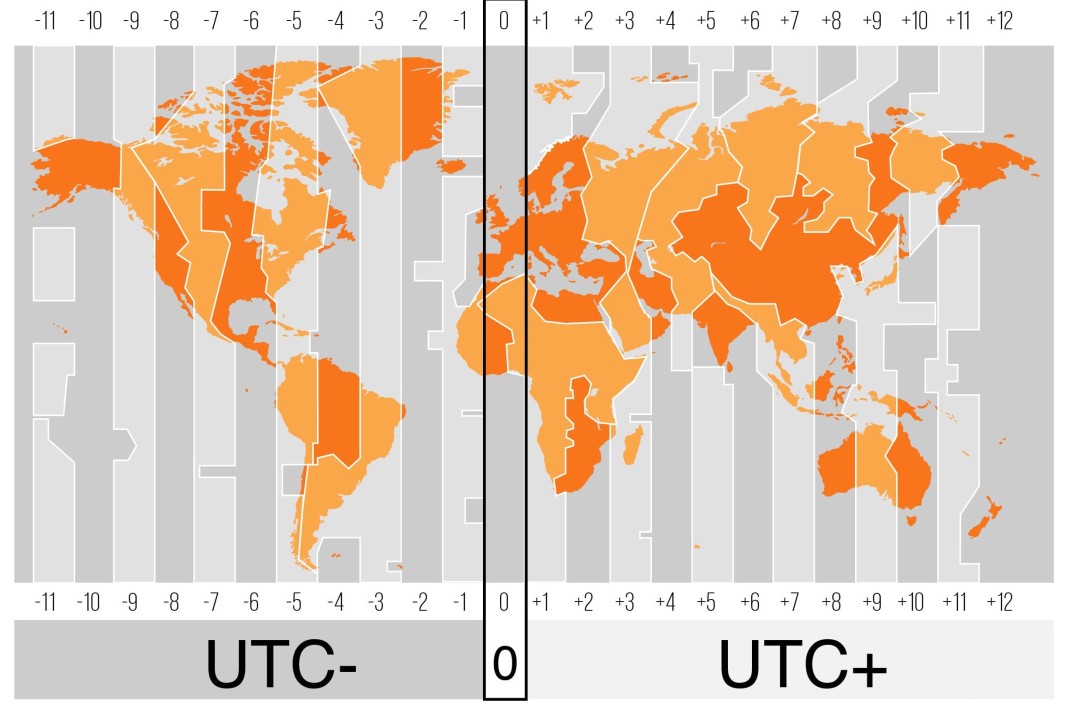Did You Know: Malaysia Once Had 2 Different Time Zones. Here's Why
Sabah and Sarawak used to be 30 minutes ahead of Peninsular Malaysia.
We're familiar with the concept of different time zones worldwide, but did you know that Malaysia had two separate time zones in the past?
But first, we'll have to understand a bit about how time zones work.
While the range of time zones was previously called Greenwich Mean Time (GMT), it is now referred to as Coordinated Universal Time or Universal Time Coordinated (UTC). The different time zones are all abbreviated as UTC, with a + or - symbol and a number indicating how many hours ahead or behind it is from the universal time of UTC+0.
So, Malaysia is under the UTC+8 time zone, as is Singapore, Brunei, and Hong Kong, as well as some parts of Indonesia and Australia.
Okay, now back to Malaysia having two different time zones!
If you observe the map of time zones below, it looks like Peninsular Malaysia should be within the blue area, yet it falls under the green.
Instead, you'll see that Malaysia and Singapore are positioned differently from places like Thailand and Vietnam in terms of longitude (north to south).
As you can see, Peninsular Malaysia seems like it belongs in the UTC+7 time zone, while East Malaysia roughly falls under the UTC+8 time zone.
Turns out, this was exactly the case at some point in your "great great great grandmother's" days.
Sabah and Sarawak were once in a different time zone than Peninsular Malaysia and the reason dates back to the colonial era
When British North Borneo (now Sabah) and Sarawak were under British rule, they operated on a different time zone from Peninsular Malaysia. Back then, East Malaysia (Sabah and Sarawak) was 30 minutes ahead of Peninsular Malaysia (West Malaysia).
This time difference had negative impacts on work hours in both sides of Malaysia. Yet, the practice continued until 1981.
On 1 January 1982, Malaysia decided to unify its time zones, bringing Peninsular Malaysia into the Malaysian Standard Time zone (UTC+8)
Tun Dr Mahathir Mohamad, who was prime minister at the time, introduced the Malaysian Standard Time Act in 1981, which required advancing the clocks by 30 minutes at 11.30pm on 31 December 1981 to follow East Malaysia. Consequently, New Year's celebrations commenced earlier than usual that year.
This move aimed to simplify administration and facilitate communication and coordination between different regions of the country. Singapore followed suit the same day.
According to Tun Mahathir, East Malaysian time was chosen because it was more in line with international practice, where the difference between time zones was one full hour rather than 30 minutes.
This is why Malaysia and Singapore are one hour ahead of Thailand, despite roughly being on the same longitude.
Fun fact: If we look at history, Malaysia's time zone has actually been changed six times prior to that last change in 1981, reported Cilisos.
This is due to various factors, including colonisation. Malaysia's time zone adjustments were influenced by the colonial powers that ruled during that specific time, such as the British and Japanese administrations.
Decades later, some Malaysians feel that the country should return to its previous time zone, UTC+7, for geographical and practical reasons
They argue that aligning Malaysia's time zone with its neighbouring countries would facilitate smoother communication, trade, and travel. It could also reduce confusion and logistical challenges arising from differences in time zones.
Other Malaysians argue that being on UTC+7 would better match the country's natural daylight hours, leading to increased productivity and improved work-life balance. This alignment could enhance energy efficiency and contribute to overall well-being (and better sleep!).This is because being in the UTC+8 time zone means that those who live in Peninsular Malaysia start their mornings later than the rest of the countries within the blue section of the time zone map shown earlier.
So, if you live in Peninsular Malaysia, your natural body clock is out of sync with the sunrise, which is why switching to UTC+7 could lead to better sleep.



